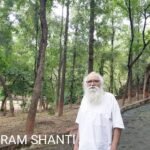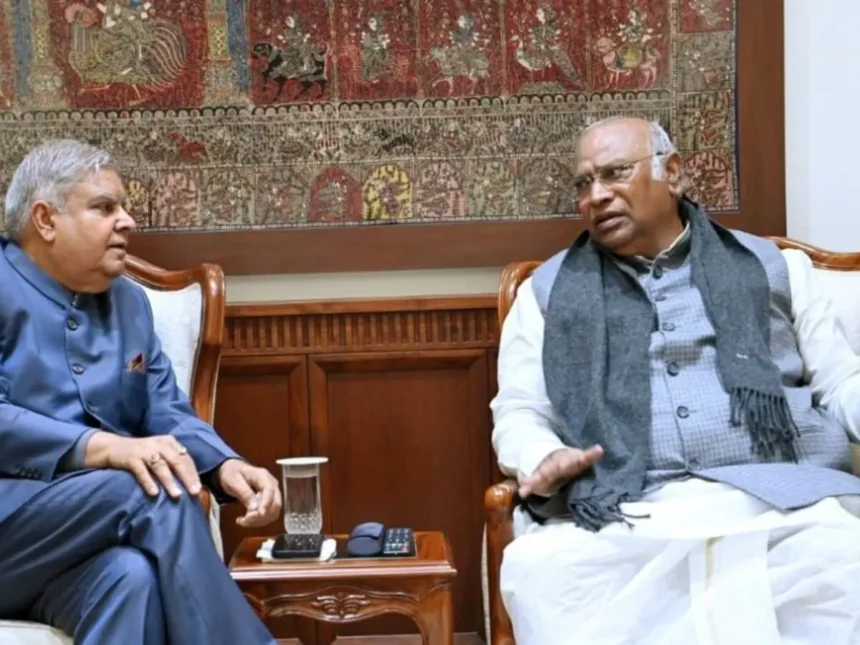In a recent exchange of letters, Congress president and Rajya Sabha Leader of Opposition Mallikarjun Kharge responded to Vice President and Chairperson of the Upper House Jagdeep Dhankhar’s invitation for discussions. The focal point of their communication revolves around the mass suspension of MPs from both the Lok Sabha and Rajya Sabha, a move Kharge asserts appears to be “predetermined and premeditated by the government.”
The dynamics between Kharge and Dhankhar highlight the broader concerns plaguing the parliamentary landscape, including disruptions, the passage of bills, and the aftermath of the Winter Session. Kharge’s acknowledgment of Dhankhar’s suggestion to move forward post the Winter Session underscores a shared recognition of the need to address challenges and uphold democratic values.
Kharge, currently out of Delhi, expressed his commitment to engaging in discussions upon his return. His response reflects a dedication to parliamentary practices and constitutional principles. He stated, “While I am currently out of Delhi, it would be my privilege and indeed my duty to meet you at your earliest convenience as soon as I am back in Delhi.”
About Kharge-Dhankhar Exchange:
The underlying tension in these correspondences reveals a larger narrative—one of a delicate balance between upholding democratic values and grappling with perceived authoritarian tendencies within the government. Kharge’s emphasis on adhering to the Constitution, parliamentary practices, and a deep-seated belief in democracy signals a commitment to maintaining the integrity of the parliamentary system.
The assertion that the suspension of MPs appears predetermined raises questions about the fairness and impartiality of parliamentary proceedings. The exchange sheds light on the challenges faced by opposition leaders in ensuring robust debate and discussion in Parliament, particularly when confronted with measures perceived as authoritarian.
As both leaders navigate this intricate web of parliamentary intricacies, the onus lies on preserving the sanctity of democratic institutions. The call for a fresh meeting after Kharge’s return to Delhi indicates a willingness to engage in constructive dialogue, even amid existing tensions.
The Kharge-Dhankhar exchange serves as a microcosm of the broader issues plaguing parliamentary proceedings. It reflects the delicate balance between opposition concerns, the government’s actions, and the imperative to uphold democratic principles. As these leaders continue their exchange, the nation watches, awaiting resolutions that align with the foundational tenets of democracy and parliamentary governance.











